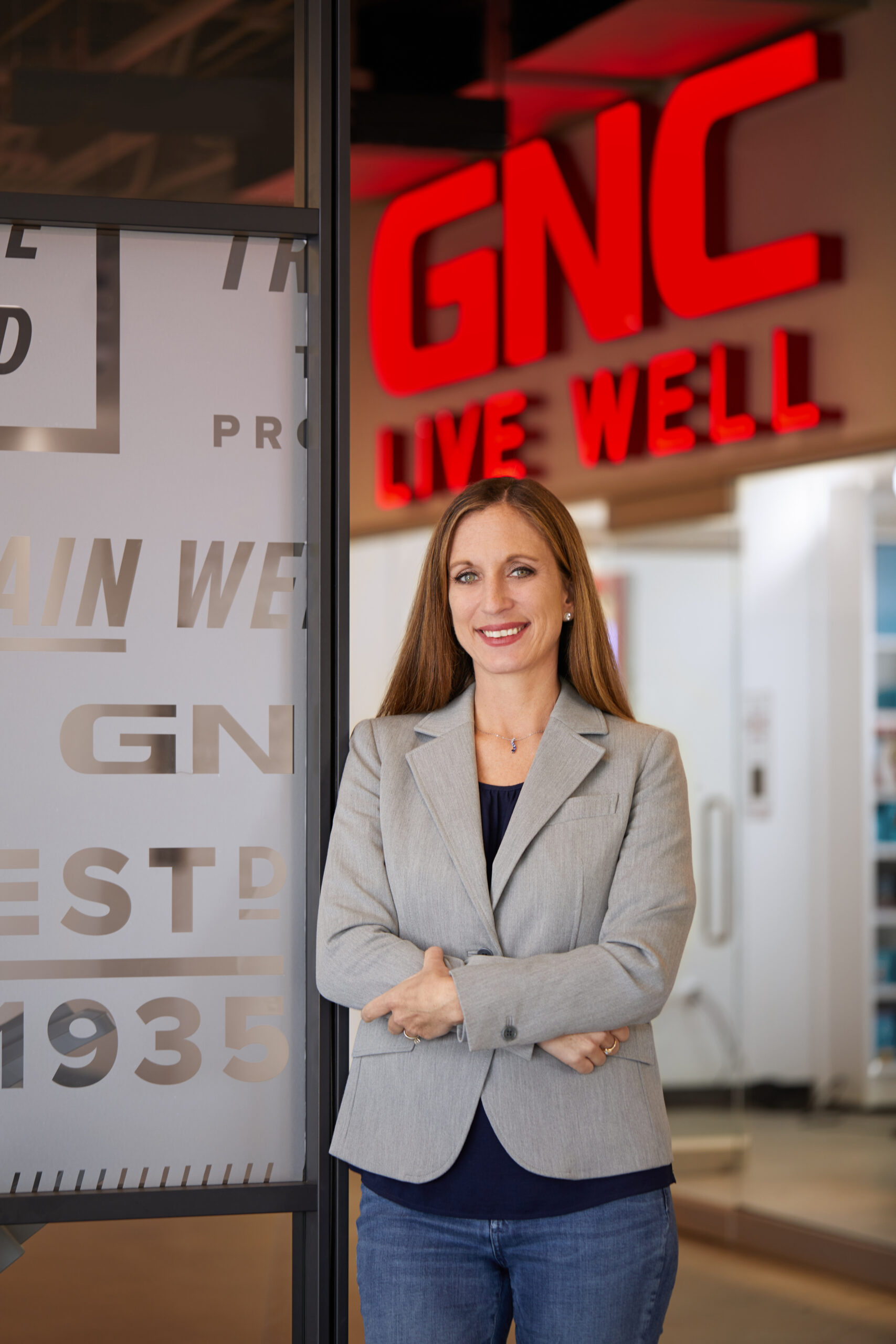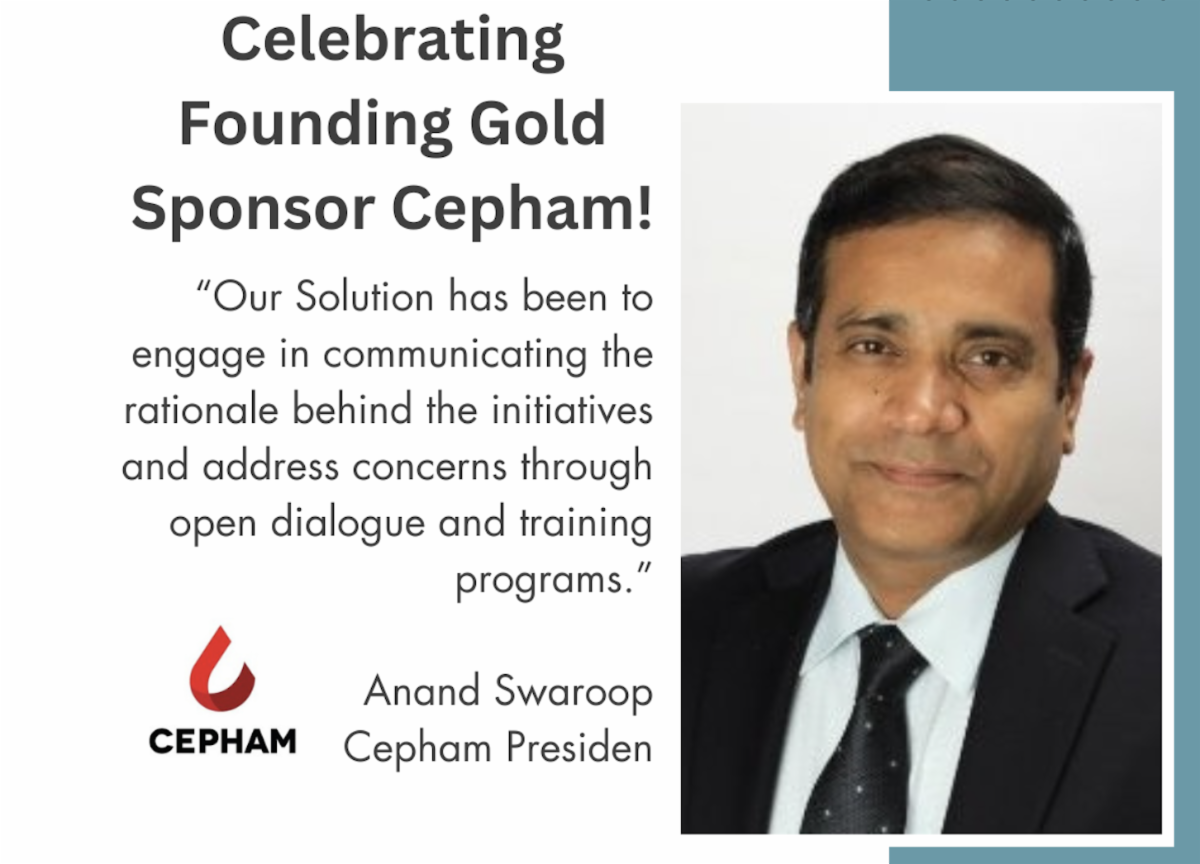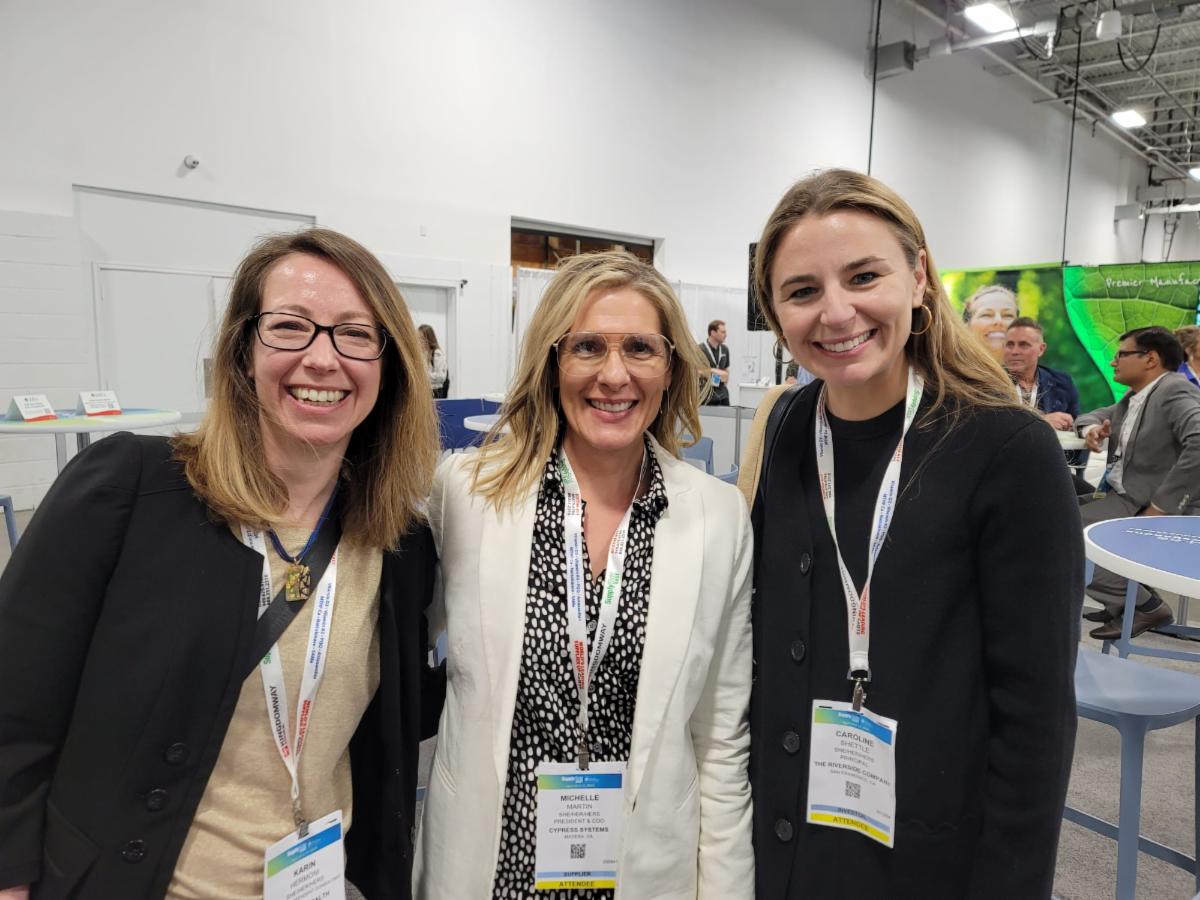WIN Leadership Interview Series: Q&A with Rachel Jones, MS, RDN, Senior Vice President and Chief Product Innovation and Science Officer at GNC
Rachel leads global product design and development, product brand strategy, and is responsible for delivering high-quality products that produce results. To learn more about GNC please visit https://www.gnc.com/.
What initially attracted you to join GNC?
I moved to Pittsburgh in 2002 after finishing my graduate degree in Human Nutrition. I was working at a hospital as a Registered Dietitian, but I always knew I wanted to find a career opportunity in which I could further leverage my education in nutrition, passion for scientific research, and experience as a competitive athlete who personally realized the impact nutrition can have on sports performance. And, having a family rooted in Pittsburgh, I wanted to build a career and start a family locally.
I learned GNC’s world headquarters were in Pittsburgh (in the same city where we were founded in 1935), saw a position posted to project manage research requiring a nutrition science background, and I applied. My interview was four hours of intellectually stimulating (but exhausting) debates around science, nutrition, research and supplements. I left feeling like I had so much to learn, but I could tell immediately there would be opportunities to leverage someone like me that GNC hadn’t yet contemplated. I was happy to be offered the job and began my career at GNC in January 2004 determined to blaze a unique path. It felt like the perfect fit for me – to work for a company whose mission aligned with my personal career mission – to help people live well through nutrition.
In the announcement about your promotion, it was emphasized that you had focused on cross-disciplinary collaboration with a team-first mentality. Tell us about your approach to leadership and team building, and how you have developed it through the years.
Throughout my life, I’ve experienced the power of a team-first culture and strong leadership. As a child, I watched closely how my dad led a basketball team to win a championship when odds were stacked against them. As a teen, I experienced being on a state champion, nationally ranked cross-country team led by one of the best sports and life coaches I have ever met. My husband and I both competed as Division I athletes in college, surrounded by high caliber coaches, athletes and leaders. Within all of these experiences, the common theme tied to success was the presence of a leader who cultivated a solution-oriented culture coupled with processes focused on teamwork. And…the leaders successfully got the team members to buy in to the vision and process to persevere through challenges and ultimately achieve results.
I have always applied the leadership and life lessons I learned through athletics to my professional efforts. Early in my career as an individual contributor, I would make sure I understood how what I was working on contributed to a larger goal. I connected with teammates and cross-functional partners to lean on each other to drive results. I noticed I would often surprise people when I would seek them out and check in. For example, as a project manager for clinical studies at GNC, I recall the first time I approached our VP of Marketing to make sure what we were doing would support the best marketing claims. This was new for him, but he was very excited and appreciative that our R&D roadmap was indeed in service of delivering a better marketing story. Other times colleagues interpreted my efforts to collaborate as potentially stepping on toes – but most would come around once they realize the collaboration will help them achieve their goals too.
Once I had the opportunity to manage people, build teams and create new processes, I continued to apply team-first principles and fostering openness to lead through different personalities, management styles and challenges. I became more comfortable being uncomfortable, accepting there will always be bumps and barriers to navigate that can get in the way of your path to success. In a nutshell, the leadership principles I continue to subscribe to have been effective for me in sports, in my personal life and in my career, are as follows:
- Create a vision
- Set clear expectations to realize the vision
- Empower your team and guide them to create individual goals that align to the vision
- Communicate clearly, honestly, and courageously
- Be empathetic and curious versus judgmental
- Approach every leader, colleague and employee as a teammate working towards a common goal
- Take accountability for your work and behaviors
- Avoid a culture of toxic behavior like blaming, complaining, and defending
- Break down silos
- Educate, coach and mentor…daily
What have you learned about inclusivity and thinking differently through your time in GNC’s international team, working with a diverse team of colleagues?
My experience through my time in GNC’s international team was very eye-opening. I had the opportunity to travel to 15 countries and regularly collaborate with partners across approximately 50 different international markets. I learned about cultural nuances that influence everything from business operations to various perspectives on nutrition, health, and products. I began to develop an understanding of the similarities and differences pertaining to market trends, consumer needs, and regulatory requirements across different markets. For example, I found it fascinating that while GNC was known for sports nutrition innovation in the United States, consumers in the APAC regions relied on GNC as the authority on quality nutritional solutions for mothers, babies, and children. I realized globalizing a brand and a business can be very difficult, and you must be willing to work much harder through cultural and regional nuances to succeed. Ultimately, I gained an appreciation for the opportunities we have as a global business and the importance of contributing to enterprise-wide, global thinking as a member of the GNC executive leadership team.
How has GNC benefitted from developing and empowering a diverse leadership and product development team?
As with any team set up for success, it’s important to have diversity in expertise and experience to accomplish goals. Our leadership team is comprised of a strong group of men and women with a plethora of experiences across retail, marketing, merchandising, international business, product development, people management, technology, store operations and more. The group includes a combination of retail experts and global business leaders, which allows us to forge ahead with a solid game plan for the future.
Regarding the product development group, I am proud we’ve built a strong, diverse team of experts passionate about developing the industry’s best products. This group includes 12 associates with post graduate degrees, including three, doctoral degrees, roughly 60 percent are nutraceutical industry veterans (10+ years each) combined with 40 percent staff with expertise in adjacent fields to strengthen our processes with outside perspective. The combination of expertise in global brand management, creative design, copywriting, science, nutrition, technical product development, manufacturing, packaging and project management allows us to continue to delivery on our legacy of leadership. We are focused on creating top quality products with innovative product features and benefits that consumers demand. This diverse team also allows us to forge strong partnerships with manufacturers to deliver innovation rapidly, maintaining the highest quality GNC standards.
What are some of the challenges—and opportunities—you’ve encountered as a female in leadership and in science in the nutraceutical industry?
From a professional standpoint, as a female in leadership within the science and nutraceutical industry, I have consistently felt respected and heard. Both the combination of the diversity within the nutritionist profession and my leadership style likely helps as I am not shy to voice my opinion and do what it takes to push information and decisions forward. I focus on speaking up, sharing information and making strong recommendations to help our consumers Live Well.
My biggest challenge, personally, has been achieving a healthy work-life balance. Leading a team to launch several products on time during the day, attending multiple sporting events to support my kids in the evening, and making time for self-care, while also trying to be the best wife, mom, friend, and professional can be a lot to manage simultaneously. What has helped me is building a support network of professionals who share in the same challenges including personal connections, industry organizations, and support networks for women in leadership within and outside of our industry. I believe there is an opportunity to continue to forge and build upon these types of groups to help women in leadership succeed professionally and personally.
Can you speak to the importance of clinical research on nutraceutical products and food supplements, particularly the potential for ensuring studies are gender balanced?
The role of continuous research in nutrition science is critical to ongoing discovery, validation, and qualification of nutritional approaches. When researching ingredients or products, it is important to identify the target consumer base for the product opportunity prior to designing a clinical research protocol.
Let’s use an example of creating a research plan to assess the impact of an ingredient or product on measures of stress and mood. In this instance, the marketable product is something intended to be sold to both men and women. Knowing this, it is important the clinical research protocol be designed to target a population of both men and women representative of the target marketing population. From a statistical perspective, it’s important to include adequate sample sizes of both men and women so the results can be analyzed to confirm efficacy in total group, as well as efficacy in men and efficacy in women. Sometimes, depending upon the research questions, running one study with men and a similar study with women separately may be required to account for physiological differences.
What advice would you give to younger women starting their journey in the nutraceutical industry?
I’d give the following advice to women in their career journeys, regardless of seniority, role, or life stage:
- Stay true to yourself and what you believe in, no matter what
- Be confident in sharing your expertise and opinion
- Put the consumer at the center of your recommendations
- Build and nurture connections and a support network in the industry and adjacent organizations
- Define your career “why,” create a vision around it and build a plan to pave a path that works for you – even if it seems unconventional





